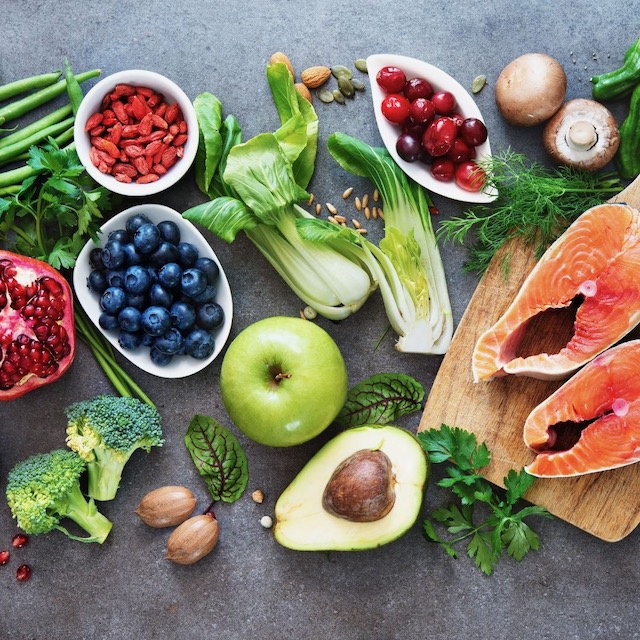We already know the score. Certain pesticides and solvents raise the risk of Parkinson’s. That theme runs through years of research and is laid out for a wide audience in the hugely popular book The Parkinson’s Plan. But if you already live with young-onset Parkinson’s, the more useful question is different. What can you do now to dial down everyday exposures that may make symptoms harder to manage or chip away at long-term health. 
You do not need to bubble wrap your life. You can tilt the odds. Start with the air. Most exposure happens at home and on the way to work. Traffic fumes irritate airways and can nudge fatigue, sleep, and thinking in the wrong direction. Pick side streets when you walk, cycle, or run, and hit the recirculate button in the car when you are nose-to-tail. Gas stoves release nitrogen dioxide and fine particles, so turn on a vent that actually pipes outdoors and crack a window. If you ever remodel, induction is kinder on indoor air. Scented candles, plug-in fresheners, and incense smell nice, but add a fog of chemicals your lungs never asked for. Fresh air beats fragrance. Dust is a chemical sponge, so a weekly sweep with a HEPA vacuum and a damp cloth does more good than any fancy spray. If wildfires or city smog are part of your life, a room air cleaner with a real HEPA filter and a slab of activated carbon is a solid buy.
Water next. US tap water is generally safe, but aging pipes and new contaminants still crop up. Check your annual water quality report, and if you are on a well, test it. If you want a filter, choose one that is certified to remove the things you care about, such as lead or PFAS. A pitcher makes water taste nicer, but many do not do much more than that. Under-sink or on-tap systems with proper certification are the grown-up option.
Food is where worry and joy meet. Keep it simple and steer toward whole ingredients you recognize. Cook a bit more, unwrap a bit less. Wash fruit and veg under running water and give firm produce a brief bicarb soak. If you want to go organic but need to watch the budget, prioritize the produce that tends to carry higher residues and buy the rest conventional. Trim excess fat from meat because fat is where fat-soluble pollutants like to hide. Choose fish that sit low on the mercury ladder, such as salmon, sardines, and trout, and keep swordfish or big tuna for occasional treats. Packaging matters too. Store leftovers in glass or stainless steel, avoid very hot food in soft plastic, and try not to microwave plastic tubs. A US note while we are in the kitchen. You may have heard about “chlorinated chicken.” American poultry processors can use antimicrobial rinses such as chlorine or peracetic acid. If that puts you off, look for producers that spell out their process or choose certified organic poultry that avoids those rinses.
Household products deserve a quiet rethink. Most cleaning can be done with warm water, a little dish soap, bicarb for scouring, and white vinegar for glass and limescale. Do not mix vinegar with bleach. If a product turns your bathroom into a perfume shop, it is filling your air with volatile chemicals. Choose fragrance-free when you can. If your non-stick pan is shedding, it is time to retire it and reach for stainless steel, cast iron or a good ceramic coat. For food storage, glass and steel beat plastic every day of the week.
Gardens and lawns are where good intentions meet big labels. You do not need a perfect lawn. You do need a safer plan. Block entry points for pests, store food well, and use traps before sprays. If you must spray, read the label every single time, wear gloves, and avoid drift. Avoid paraquat full stop. In the flower beds, mulch early, pull weeds before they own the place, and spot treat rather than misting the whole zip code.
Work and hobbies matter because young onset often means you are still on the job and still hands-on at home. If you work with solvents, fuels, degreasers, paints or fine dust, ask for the Safety Data Sheet and talk to your employer about controls. You have a right to a safe workplace. Ventilate well when you paint or glue at home. Choose low VOC paints and adhesives. Wear gloves for solvents and wash up before you eat. Metalwork, pottery glazes, and resin casting are great hobbies, but they deserve masks, local exhaust, and common sense.
All of this can feel like a lot. The aim is not fear. It is a few steady swaps that lower the background noise of chemicals you do not need. Parkinson's can make you feel that control has slipped away. Environmental choices give some of that control back. You will not remove every exposure. You will lower the load, and that is worth doing.

